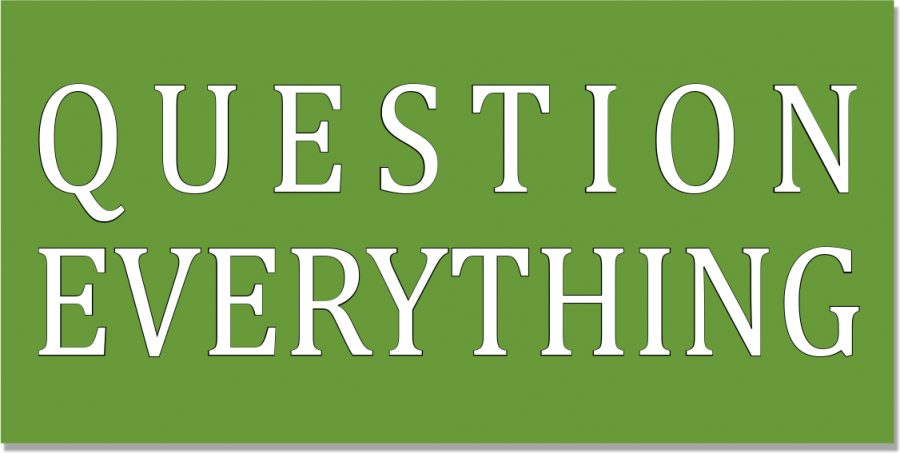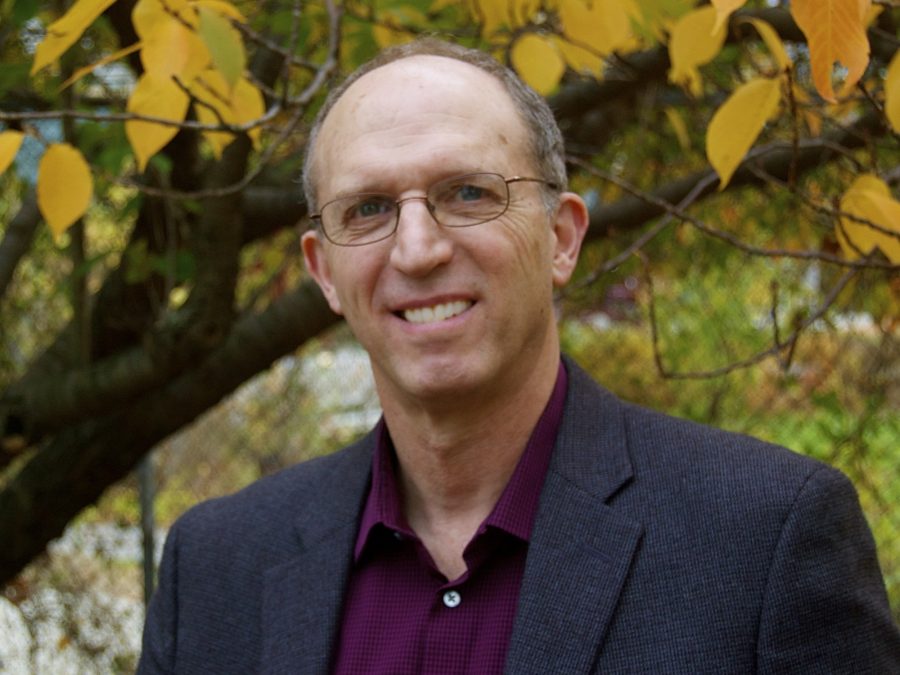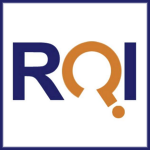Question Everything

Do we have time for questions anymore? As busy parents, do we reward the constant why, why, why that is the hallmark of childhood? Do teachers entertain questions in time-crunched classrooms? Do our leaders encourage questioning and transparency as they represent us? Do our doctors have enough time to ask the questions that would aid a proper diagnosis?
The lowly question has lost its appeal in the information age. Answers are so easy—why ask questions?

Rothstein is a big fan of questions. His professional experience has taught him that thinking in questions—like little kids—may be the key to becoming better problem solvers and decision-makers, more creative thinkers, better students and more engaged citizens. In fact, Rothstein and RQI think that formulating effective questions—strategic questions that lead us to the answers we seek—may be the foundational skill for critical-thinking and higher learning. But, it is a skill that is rarely, if ever taught in school.
A PROTOCOL CREATED THROUGH GRASSROOTS ADVOCACY
Early in his career Rothstein worked as the Director of Neighborhood Planning Director in Lawrence, Massachusetts trying to curb high dropout rates in the city. It was Rothstein’s job to work with parents from diverse socio-economic backgrounds and get them involved in their children’s education—to convince them that they could make a difference and encourage them to engage with the schools.
In these conversations they learned that many parents didn’t participate in their children’s education and didn’t engage with their kid’s teachers because they “didn’t even know what to ask.”
That was an epiphany for Rothstein and his team. “The parents named an insight that had never really been fully recognized—not knowing what to ask as a major obstacle to effective participation,” he explains.
Rothstein set out with other members of his team to explore this problem in their community-building work. They first tried a simple fix: supplying the parents with prepared questions to take with them to a school meeting. “We discovered that it only created greater dependency on us which was the opposite of what we were trying to accomplish.”
They needed to teach the parents to come up with their own questions so that they would take ownership. “We spent a lot of time trying to figure out what’s the simplest way to teach what is really a very sophisticated thinking skill—learning to ask your own questions and getting better at asking questions,” he says.
They found that the skill did not come naturally to most people. Initial barriers to participation—fear of judgment, embarrassment or shyness could be overcome as a group built trust. “But we started to understand that this was a dramatic change in practice,” Rothstein explains. “People were accustomed to being asked questions not to actually being invited to work on asking their own questions.”
Working with small groups, they observed how people formed questions and that producing questions (not statements, ideas or facts) was very difficult. “We then had to create these rules for producing questions that are similar to brainstorming rules, but also very different because you are working only with questions.”
“QFT helps you organize your thinking around what you don’t know.” -Stephen Quatrano, RQI board member
They tested out lots of ways to lead people through the process of developing questions and determined that an essential element was a stimulus or focus for question formation. “We came to understand how important that was. We created this term Question Focus (QFocus).” The QFocus is an initial prompt that focuses the group to form more directed and relevant questions. It can be a description of the problem at hand or a statement or subject depending on the setting.
THE QFT TECHNIQUE
The Question Formulation Technique includes the following steps:
- Design a question focus (QFocus)
- Produce questions
- Work with closed-ended and open-ended questions
- Prioritize questions
- Plan next steps
- Reflect
Once a group has a QFocus, each member must pose as many questions as they can and one member records the questions without stopping for discussion. No question is judged, reworded or rejected. When the questions have been formulated, the group works on improving the questions (changing close-ended questions to open-ended and any statements to questions). They then prioritize the questions and select three key questions. They decide how they will act on each question and finally they reflect on what they have learned from the process.
It took years of trial and error to refine the process—to make it simple, usable, repeatable and reliable. The Right Question Institute calls this protocol the Question Formulation Technique (QFT).
Rothstein points out that this is not a technique that was created in a think-tank or by academics or communications experts—this is a ground-up process that began with regular people in challenging circumstances. Although they started their work with adults in low-income communities, it soon became apparent that the protocol could be effective in almost unlimited settings across age groups, disciplines and education levels.
These days QFT is used by Lexington Public Schools, Harvard graduate students, Microsoft Corporation, Kaiser Permanente, schools in rural Appalachia and many more organizations around the globe to stimulate participation, aid in self-advocacy, unlock creative potential and facilitate learning.
Why is the Question Formulation Technique so powerful?
As participants learn to produce their own questions, they are thinking divergently—that is, more broadly and creatively. When they focus on the kinds of questions they are asking and choose their priority questions, they are thinking convergently—narrowing down, analyzing, assessing, comparing, and synthesizing. And when they reflect on what they have learned through the process, students are engaged in metacognition—they are thinking about their thinking. -RQI
HOW CAN QUESTIONS CREATE BETTER CITIZENS? The Hawaiian Sugar Cane Plantation Experience
When sugar cane plantation workers were about to lose their livelihood in Hawaii, RQI was brought in to help the workers through the transition.
“The plantation was being sold off,” Rothstein explains. “The department of public health brought us in. They were worried about how company owned housing was going to be divided up, how the land was going to be used, how healthcare was going to be provided all of these things that the company had provided.”
Working with these farm workers, RQI gained insight about how the QFT could empower people to take ownership and participate in decisions that could affect their immediate welfare and their future. Like their work in Lawrence, they observed that the simple act of asking questions was empowering to those who felt disempowered.
“That was a major point in our development—in understanding how to help people learn to focus on decisions right in front of them as the first step in learning how to participate effectively,” Rothstein says. ”What people learned was they needed to ask questions about the decisions that were going to be made locally—about the housing and the healthcare but that they were not able the change the decision made by a corporate board in London.” RQI witnessed that this process engendered a sense of control in people who felt helpless. “This process changes the dynamic and says that it’s not just the person with more power who gets to ask the questions,” Rothstein says, “but it’s the person who needs the service or the information or the help that also is entitled to question.”
What RQI observed through this experience and other advocacy work they conducted around the country was the many ways that positive interactions by disenfranchised people with institutions or figures in power could improve their self-esteem and increase engagement. “The process of asking questions sets up the expectation for responsible decision making from that authority figure,” Rothstein says. It’s a way to hold the system accountable.
This led RQI to the insight that each of these advocacy situations had produced citizens that were more prepared and therefore more engaged with their communities through each productive interaction. Government agencies like Medicaid, Social Security, immigration, schools, courts or housing authorities can be little gymnasiums for the “small d” democratic muscle necessary for citizenship. “They need an opportunity to see how all those services and programs are affected by decisions made by elected officials who are usually invisible,” Rothstein says. “It’s a muscle that develops over time through action. If you don’t develop the muscle it atrophies.”
RQI calls this network of public institutions “outposts of democracy or a Microdemocracy” where citizens or prospective citizens are often discouraged from participating in their own government. “When they experience participation on the micro level they discover the value of participating in traditional forms of democratic action,” he adds.
RQI’s Better Questions Better Decisions (BQBD) Voter Engagement Workshop uses the Question Formulation Technique to help citizens become more involved with the democratic process. “It’s a voter engagement strategy that starts where people are and allows them to ask questions about decisions that are affecting them all the way up the democratic decision-making chain. It’s a different way to approach voter education,” Rothstein says. RQI thinks their strategy can make democracy work better.
HOW CAN QUESTIONS CREATE BETTER STUDENTS? The Classroom Experience
It’s actually fascinating that Rothstein and Santana, who started their work so many years ago with adults, have come up with an insight and a protocol that has perhaps its most natural application in the classroom.
And, it could not be timelier. As intellectuals, college educators, employers and innovators reflect more and more on our current testing-centric education system—the decline of creativity, the collapse of critical thinking and the crisis of school funding—RQI enters with a decidedly low tech, low cost protocol that can radically transform learning. Switching the classroom dynamic and allowing kids to do what used to come naturally—ask questions—paves the way toward a coveted educational goal—creating critical thinkers for 21st century jobs and lives.
Naysayers believe that there can’t possibly be time for student generated questioning in the modern classroom with its performance demands and multiple assessments. To the contrary Rothstein says, “When students spend time on forming questions about what they need to learn it’s not a detour—it’s actually a shortcut. They just get there much more quickly and more effectively.” He’s not guessing about this; he’s seen it in practice. “This is what we have seen from educators all around the world—there are now over 200,000 educators using the question formulation technique.”
Teachers continue to inspire Rothstein and his colleagues at RQI. “There’s an art and a science to the question formulation technique. The science is—it’s a protocol. The art is in learning how to adapt it to what you need to be teaching what the students need to be learning,” he explains. RQI has now developed an extensive library of tools available for download from their site to help educators deploy the protocol in their classrooms.
QFT IN LEXINGTON PUBLIC SCHOOLS
As a Lexington resident, Rothstein is particularly pleased about the enthusiasm that the Lexington Public Schools have expressed for the QFT program. “So many Lexington educators are using the QF technique and it’s really great,” he says. “When successful communities also recognize that they want their students to be asking better questions, that’s inspiring.”
The Lexington Education Foundation awarded a grant to Lexington middle schools to attend a RQI summer seminar. Social Studies specialists were interested in using the technique to foster “higher order thinking skills.” RQI did further professional development across the district to enhance teachers’ understanding and implementation of the protocol.
Karen Russell, an English teacher at LHS, was one of the QFT pioneers in Lexington. I talked with Russell by phone and she was very enthusiastic about using the QFT in the classroom.
“I often use it when I begin a text,” she says. “Students’ questions inform me about their interests and [through the process] they take ownership over where we are going with the text,” she explains. “It gives me a chance to listen to their concerns about what the text might address. Great texts have plasticity that way and can lead in many different directions.” Russell says it works particularly well with students who may not be so quick to speak up in a regular setting. “I often worry about the students who take more time to process and want to go deeper—where do we give them a chance for their voices to be heard? This process values that.”
Russell also refers back to the student’s questions throughout their study of the text. “They’re given permission…their thinking is valued and they know it’s not just the right answer I’m looking for. When they ask their own questions, the seed of their ideas has been planted early on and they’re growing their own ideas.”
Russell also appreciates that the QFT is being used across the history curriculum at LHS so the language and process is familiar to students. She finds the common practice creates fluency and ease for the students. “In a place like Lexington where so many students are articulate and so quick to have the answers, it’s a chance to slow down. It’s a very different way of thinking and it often frustrates the kids who always have a quick answer which isn’t a bad thing,” she says. “To work together and listen to what other students have to say is a benefit for them.”
Rothstein says all teachers like this about the QFT. “It creates a better community and it creates respect for different perspectives among the students.”
Through creation of this invaluable protocol, the Right Question Institute has taken a complicated skill and made it accessible to everyone in any setting that requires engagement, advocacy or problem-solving.
In education, where problems often seem insurmountable, this technique is low-tech, affordable and transformative. Encouraging collaboration, sparking curiosity and creativity, creating confidence and laying the groundwork for critical thinking can only increase our capacity as a nation to thrive in the 21st century and help our kids realize their potential in these challenging times.
To learn more about the work of the Right question Institute, visit them online at rightquestion.org.

